
During my second year at university, I took the plunge and spent a semester abroad- this means I spent the first semester of 2nd year (from August to December, because of the semester timings) studying at the University Of Pennsylvania- UPenn (the 'host' uni) instead of Oxford Brookes (my 'home' uni). Going on a exchange was 100% out of my comfort zone, but was also easily one of the best experiences of my life and I'll be forever grateful that I submitted that application. At the time I went, Brookes and Penn had the only full exchange programme between a UK and US university (i.e. academic and clinical experiences)- I believe that a couple of other uni's were in the process of setting up similar full exchanges, but logistically it's a bit of a nightmare with NMC regulations, clinical hours etc. so I feel very lucky to have been at Brookes and got this opportunity.
On the practical side- American nursing degrees are very distinct to UK degrees. They're 4 years instead of 3, and you study all fields of nursing (adult, paeds, MH/LD and midwifery) instead of choosing prior to uni, and then specialise once qualified. The first 1.5 years at Penn are purely theory and simulation based. From halfway through second year to the end, students have one placement per semester. Penn is consistently ranked as the number one school for nursing in the world, and is an Ivy League college so the nurses we were training with really were some of the smartest people I've ever met- but I would say that we had more clinical experience, and felt more comfortable when out in placement compared to the nurses in the cohort we joined.

On the helipad at HUP (the Hospital of the University of Pennsylvania)
There's lots of photos included in this post, and you can see more on @christie.in.northamerica. I documented the entire exchange on there, but you just need to scroll through all of my road trip through Canada to get to Philly. Have also included some extracts of assignments, the text is slightly blurry and I don't know how to fix that, sorry :(
Application and preparation...
Getting a place on the UPenn exchange programme was competitive. I got one of 3 spots after submitting a written application and going for an interview (which I kind of tanked, to be honest, but managed to scrape through!). This exchange was only open for BSc Adult Nursing students- some of the other exchange opportunities at Brookes were eligible for other nursing fields and for MSc students, check out PART 2 here which outlines these!
After getting my spot, I then had to sort out Visas, funding (we were lucky enough to get a grant from the Uni which covered a lot of the living costs) and things like accommodation on campus at Penn, and a dining plan (which was compulsory for exchange students, basically to make sure we were eating I guess? It was a strange adjustment after cooking for myself all through first year!).
We also had 2 days of extra clinical skills training with lecturers from Brookes. This covered more advanced history taking and assessment skills, and taught us how to do comprehensive neuro, GI, CV and respiratory assessments. These are skills which US nurses are taught early on in their training, but that weren't part of our NMC degree requirements (this was back in 2017, the new 2018 NMC standards do include more of a focus on assessments in providing care so these skills are routinely taught to pre-reg students).

On August 19th 2017, I landed in Philadelphia (via Washington, because of thunderstorms).
I think UPenn can pretty much be summed up by 'work hard, play hard'. Academically, it was a huge step up from Brookes (I really enjoyed this challenge though, and it pushed me to work smarter and harder) but there was also always so much going on on and off campus that it also became a matter of trying to prioritise the academic and practical sides of the course alongside making the most of the exchange experience. Below, I've summed up as much as possible about the academics, placements and social side at UPenn.
Academics...
Because this was a full exchange, we only had to do work set by Penn whilst we were there (i.e. not doing any of Brookes' essays or assignments, and not needing to catch up on these when we returned). The work was very different to UK university style. I think the most obvious adjustments was that instead of 40% as a pass mark, and 70% for a 1st in assignments, their pass mark was 70% and people would regularly score 90-100% in their assessments. We did 2 modules- psychiatric nursing, and nursing of the older adult- and each had multiple written assignments, including a 'Reverse Case Study', a Mental Status Exam, a process recording (see picture below), reflections, discussion posts and graded 'Prep tools', alongside a Midterm and Final exam and high stakes skills 'test outs' (basically like an OSCE). Our test outs included an arrest situation, and a therapeutic conversation for our psych module. We started the semester with a clinical boot camp, from 7a-1p which had 6 stations, including review of systems assessments, personal care and a meds calculation exam.

The above image shows an extract of a therapeutic conversation with a patient during my psychiatry placement, which formed one of our graded assignments. The first 2 columns show mine and his conversation, the third shows my reflections on the conversation, and final identifies therapeutic communication techniques. Through the content of the conversation, you can also see one of my biggest ethical dilemmas in the American healthcare system- privatised, insurance based system, and the subsequent issues of mental and physical health patients having to accept compromises in their care, risk being discharged early due to their insurance running out, and the emotional strain that financial stress places on an individual and their family.

We had regular Sim Labs to practice skills and get more practical experiences- Penn had a big focus on practical sessions, because their students only start placement near the end of year 2 (of 4). So even through academically they were head and shoulders ahead, we found that we had more confidence going into placements.

In our psych module, we had a psychosis simulation which involved listening to 'voices' through headphones whilst trying to play a game of Go Fish. I found it a really difficult experience, and it massively influenced my empathy towards people living in that situation- which was kind of the point of the exercise. Other sessions included IV meds, which we hadn't been able to do in the UK, blood transfusion, airway emergencies and oxygen therapy.
The structure of the week was wildly different to home. At home we were used to having a block of 8 weeks in theory, with skills sessions included in that time, followed by 8-12 weeks in practice. What we learnt to adapt to was lectures on a Monday and Wednesday from 9a-12p, and then placement on Tuesday and Thursday from 7a-1p (or 1p-7p, depending on which group you were in). We also had to go up to the hospital the day before clinical days to complete your 'prep tool' for the next day- I'll talk more about this in the Clinical section, We had Fridays and weekends off every week- more about this in the Living in Philly section!

Each 3 hour lecture focused on one aspect of nursing, and I've always said that America focussed on the 'science of nursing', where England focusses on the 'art of nursing'. This meant that in each lecture, the focus was on anatomy, physiology, pathophysiology and pharmacology, where our home lectures tended to focus on things like communication, leadership and management. Penn's lecture topics included skin and burns, oncology, the musculoskeletal system, bladder and bowels, and neurological injury/disease- they were intense to sit through as they were very content heavy, and you knew you'd be having a multiple choice exam covering every topic at the end of the module but they clearly laid out everything you needed to know. I still have my revision flashcards from the midterm and final exams, and actually refer to them quite regularly in my life as a nurse now.
Clinicals...
The NMC requires you to do 2300 hours of clinical practice over 3 years to register as a nurse. I don't think America has any kind of requirement like that- or if they do, the hours are far fewer. During both the placements out there, we would do 12 hours a week on placement, spread over 2 shifts. Rather than doing a full shift, we would do 7a-1p. The first and last hour of that shift were spent in pre and post conference, discussing our patients for the day and then reflecting on the shift. This left you with around 4 hours actually on the unit. Because of the fewer placement hours, we had to make up some hours when we came home in a short 6 week placement.
Instead of having a couple of students each with an individual mentor, and therefore sharing their patients, we worked as a 'clinical group'. There was 6 of us in our psych clinical, and 7 on the med-surg floor I worked. We had one 'clinical instructor', who was an RN, but didn't usually work in that clinical area, who acted as a mentor/practice assessor for the whole group.

My clinical group, with our instructor Ashly, at the end of our placement on Founders 14, a 40 bedded med-surg unit.
You'd only have one patient for the 'shift', but they would be entirely your responsibility (i.e. not the actual nurses). To pick your patient, you'd go in the day before (so for a Tuesday shift, I'd go in Monday afternoon after lectures

finished) and literally just decide amongst your clinical group who wanted which patient, based on complexity, prior experiences and learning opportunities. You were discouraged from having the same patient twice, because you could learn more from a variety of experiences. Once you chose your patient, you filled in your 'prep tool'. This is a document, pictured below for one of my patients, that could be up to 20 pages long and detailing every clinical detail about the patient, with final details like assessment findings and vital signs, filled in after seeing the patient. They were definitely intimidating to start with, but we got the hang of them quite quickly.
At the start, I sat in the hospital for upwards of 6 hours trying to find all the information I needed (the drugs section and pathophysiology by far took the longest, and I did leave the hospital in tears) but by the end of placement, I could smash out the entire thing in just shy of 1 hour.
These 4 (disappointingly blurry) images show some aspects of the prep tool. Patient and demographic details, a full history of the presenting complaint, findings from a full subjective and objective ROS assessment (done during the shift, and typed up afterwards). The meds list was the most time consuming and difficult part, having never studied pharmacology. The chart had to be completed for every medication your patient was on, which could sometimes be upwards of 15 meds (luckily once you'd written about a med once, you could just copy and paste it the next time!). There was also an imaging section and labs section- and you were expected to know which results were out of range, and make an educated guess as to why that was.
3 of the prep tools were submitted to be graded- the one pictured is my first one, which earnt me 89%, or a high B. By the 3rd, scored 99.5%, so a distinct improvement!

In terms of the actual time spent on shift, it was different from our usual shifts. Because the patient was 'yours', rather than the actual RNs, you were responsible for essentially everything. Usually this involved helping with personal care, doing a full head to toe assessment (systems focused, rather than A-E), and generally getting to know your patient. You would accompany them if they went for any procedures, scans or physio. The only thing you didn't do routinely was medications- instead, you'd go round the clinical group taking turns to do meds once per shift with your clinical instructor.
We could see the differences in our healthcare systems. The most obvious one being an insurance based system. I found this difficult to compute at times, and stories that patients told me sometimes really upset me- like patients with long term conditions being discharged before clinically ready, due to their insurance running out. They would leave the hospital, at which point their insurance would reset, and they would present immediately at the ED to get readmitted, literally into the same bed they had just come from.
There was also more of a focus on effective treatment of conditions once they were already present, which is distinct from the UK focus which seems to emphasize health promotion more, and avoiding the condition from developing in the first place.
One of the most obvious changes was the staffing levels and patient ratios. Our older adult placement unit had 40 beds, and on a shift you would usually have around 15 nurses plus a supernumerary nurse in charge, with 3 techs (aka CSWs). This gave patient ratios of 1 nurse to 2 or 3 patients, with a couple of float nurses. A 'busy' or 'bad' shift was once defined as one where there were only 11 nurses, meaning a couple of nurses had 4 patients, or the nurse in charge had to take 1 or 2 patients. I was genuinely shook and thought one of the nurses was going to pass out when I told them that we regularly had 7 or 8 patients per nurse in the NHS.......
Living in Philly...
It wasn't all hard work. Having a 3 day weekend every week, plus having the whole afternoon off after placement, gave us plenty of time to explore. Plus, the American collegiate system is very big on making sure everyone makes friends and has fun. Being there in the first semester of the year meant we could go to all the new student orientation (NSO) activities, as well as college house activities and outings. As exchange students we were required to live on campus in their college houses (basically, uni halls, ranging from 3 floors to over 30 floors per block) and because us 3 exchange students were spread across 2 college houses, we had double the amount of activities.
The uni experience was really defined by having a roommate. All the dorms had a small living area and kitchenette, most had an en suite bathroom, and there were varying numbers of bedrooms. I was in a 2 bed dorm, sharing a room with another exchange student from China. The other 2 girls were in a 3 bed dorm, so they shared a bedroom and had 2 other flat mates. Each floor of the college house had a resident advisor (RA) who was sort of like a college parent. They would organise bonding events and snack nights for us, which was so nice as it was such an easy way to get to know the people in your corridor. My college house also ran weekly games nights, group activities (like watching McGregor v Mayweather) and zumba classes.
We tried to make the most of events run through NSO and through college houses- my highlights included the Franklin Institute, the Mutter Museum of Medical Oddities, the Magic Gardens, Linvilla Orchards, and going to a baseball game (Phillies v Miami Marlins) and a college American football game (Penn v Princeton, a homecoming game- kind of like a derby, in which Penn 'raised a toast' to their team at the start of the final quarter- this involves the entire stadium throwing slices of bread onto the pitch. Like, thousands of slices of bread. We were baffled). Obviously we went and took photos on the Rocky steps too, and made a few trips to Reading Terminal Market, and tried many Philly Cheesesteaks- my favourite was from Joe's in Fishtown <3
Us 3 Brits also took our own opportunities to visit other places, like Pennhurst Asylum (reportedly haunted, and known as the 'Shame of Pennsylvania', on account of the maltreatment of patients whilst running leading to multiple deaths of mental health patients) and to an aquarium across the river in Jersey (*everything is legal in New Jersey*- for real through, we got a train across the Ben Franklin bridge and it was exhilarating).
Philadelphia is very culturally important, having been the capital of the US until 1800. The Declaration of Independence and Constitution were both signed in Philly, and you can go and visit the Liberty Bell. Because of all this history, there was always plenty to see in the city and it was all easily accessible either by taking the bus, the Septa or by walking over the Schuykill river from University City to Centre City.

We did also travel further afield a few times, with all of us making a few trips to New York. It's around 3 hours away on the bus, and dead cheap. We went for Thanksgiving, which involved a bus leaving PA at 3am so that we could get a good spot to see the Macy's Thanksgiving Parade. The whole experience was intensely American. The rest of our stay involved going for dinner with our AirBnB host's family, shopping in the sales, and seeing Dua Lipa from stage side thanks to my cousin, who worked as her sound engineer and got in touch to say they were also in NY!

Just before leaving, I also made a solo trip to NY to see Dear Evan Hansen on Broadway, which was truly incredible (expensive, but incredible)
I think one of the defining features of both trips was how BITTERLY COLD it was. This was also a feature in Philadelphia. We had been warned about the phenomenon of 'Chilly Philly' but couldn't really comprehend it until it happened. Mid November, we went to bed with temperatures in the mid 20's, and woke up to snow on the ground and temperatures getting down to -10. Truly wild. Whilst in NY, temperatures in the middle of the day only reached -3 and hypothermia was a genuine worry.
One final important point, which all exchange students should consider carefully: Health insurance. It was a requirement if UPenn that we all had adequate insurance, just in case. US insurance is a balance between overall payments, and deductibles. I opted for an insurance plan with a higher monthly payment, but lower deductibles. This meant that if I needed care (on the basis that I have existing health conditions), I'd have fewer costs associated- this worked out well for me, because I spent a day in the ER with double ear infections, a gastro bug and vertigo. Without insurance, those 5 hours spent getting anti-emetics and 3L of 0.9%NS would've cost me over $11,000. Fortunately with my insurance, I ended up paying just over $500 for my treatment. Our exchange co-ordinator, Sarah, and one of our lecturers, Maria, both came and spent the day with me which definitely stopped me from feeling so scared and alone.
I did struggle with homesickness throughout the time I was away, which is totally normal. Even though I had the other exchange girls, plus plenty of new friends and really supportive lecturers, it was difficult being away from my family and friends from Brookes. Fortunately, we were kept so busy that most of the time I barely even had a chance to feel lonely but there were moments where all I wanted was to be back in Oxford. Facetime was my saviour, so I was able to stay in touch with everyone until I arrived back home on December 19th, exactly 4 months after I'd arrived. Due to doing fewer clinical hours in America, we did have to make up some practice hours in a 5 week placement after Christmas, but this was definitely manageable (especially as I didn't have any Brookes assignments due at the same time).

Back home with my incredibly extra family, just in time for Christmas.

My take home advice really would be: if you get the opportunity, and are in a position to (lifestyle wise, financially, physically etc etc) go on an exchange, either a full, semester long exchange or a shorted Erasmus or elective opportunity- DO IT.
It was so out of my comfort zone and really stretched me, academically, practically and emotionally which was difficult at times, but I learnt a huge amount- both intellectually, clinically and personally. I made some amazing new friends and had incredible new experiences which I will definitely carry with me, and through my nursing, forever. Plus, now if I'm feeling particularly bougie I just throw in 'did you know I went to an Ivy League college?' and it makes me feel very special
Love, Christie x



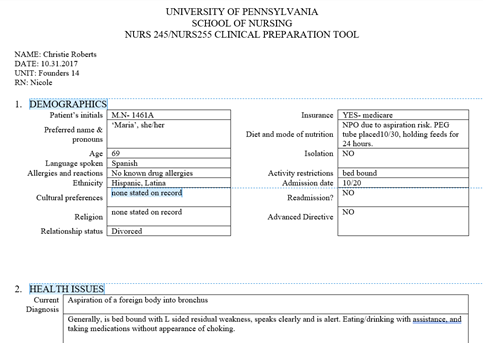

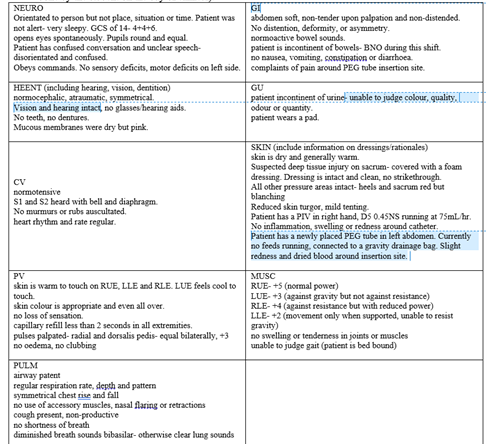

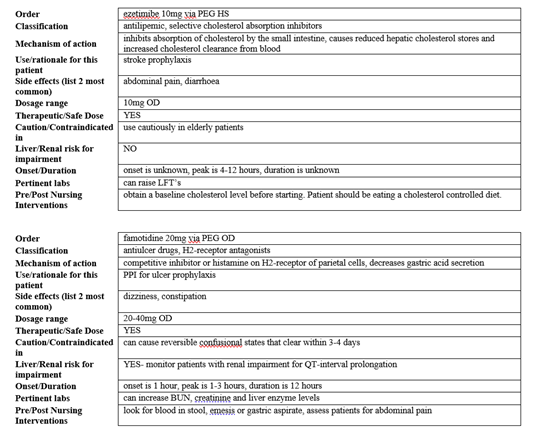

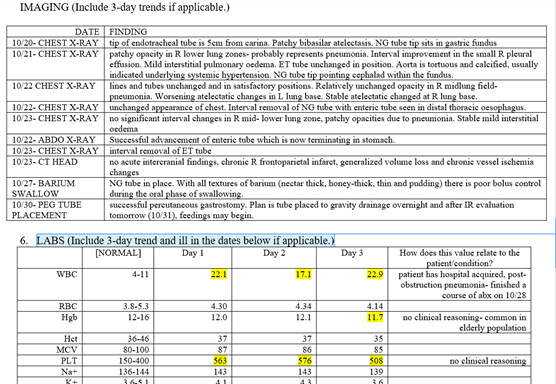























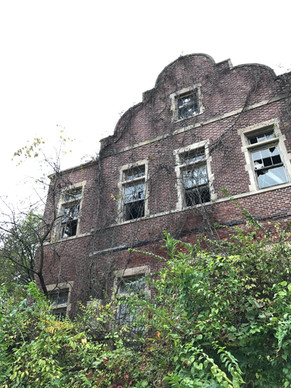






Comments